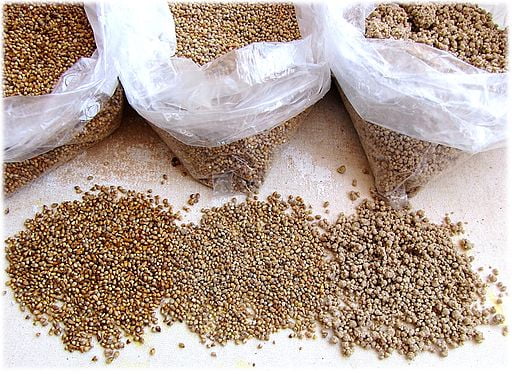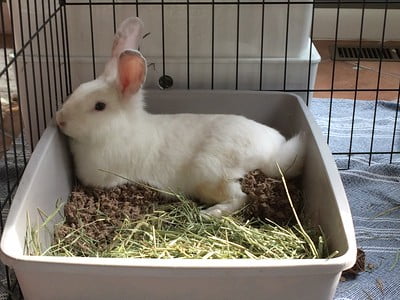Last Updated on February 20, 2023 by Marjon Ramos
To understand why a rabbit’s nose twitches, we must first determine whether it is a fast or slow twitch. The two would have different meanings.
A fast nose wiggle indicates that your rabbit is alert and looking for predators. It could also mean that your rabbit is attempting to regulate its body temperature.
A slow nose wiggle indicates that your rabbit is at ease around you or their surroundings. You might also notice that your rabbit has a slow nose twitching when you pet them or when they are sleeping.
Additionally, rabbits would also slow down their nose twitching when tired. They do this because they can’t pant like other animals. Slowing down their nose twitching would make it easier to breathe.
Now that you know the gist of the article, keep reading to find out why your rabbit’s nose twitches:
Table of Contents
Fast nose twitching
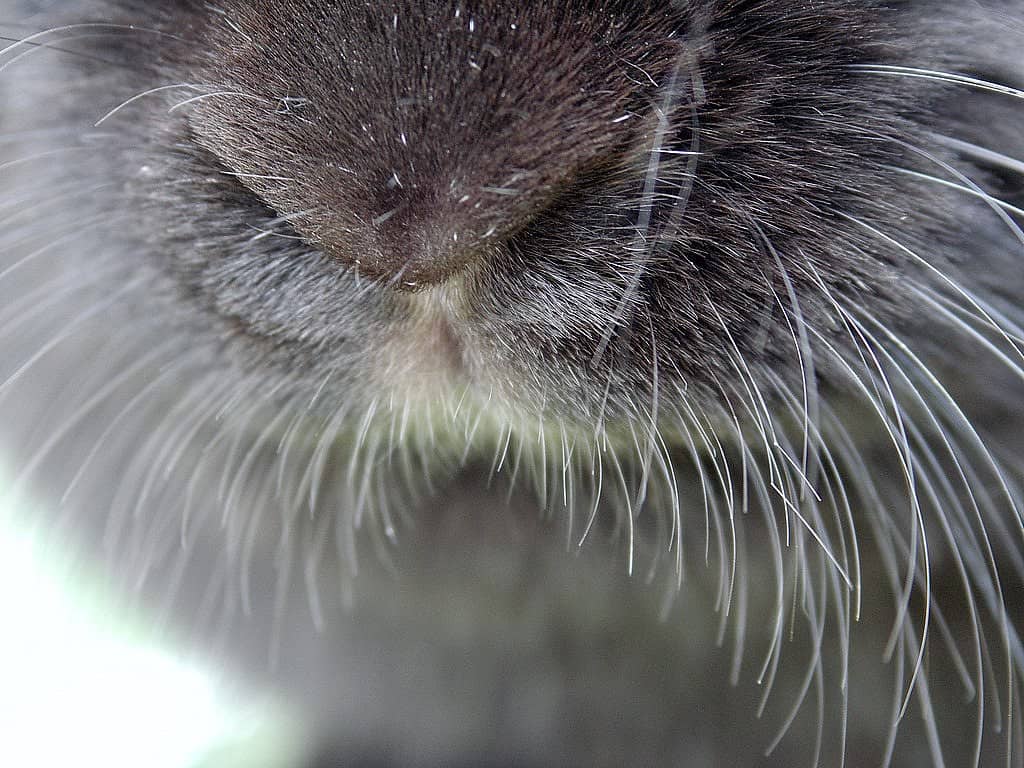
Because rabbits are prey animals, they need to be vigilant about the threats of the jungle at all times. One of mother nature’s gifts to rabbits to help them is their ability to detect a predator before they even see them:
Your rabbit is checking for predators.
Rabbits will start twitching their noses fast (up to 120 times per minute) if they get a whiff of a predator’s scent.
This allows the rabbits to expose more of their 100 million scent receptors (also known as olfactory receptors). Doing so gives them a broader sense of smell.
This provides them with enough information to decide whether to continue eating or run away.
Unfortunately, even though pet rabbits are not in any danger, they still have this instinct. Which is why they are still afraid of the one who looks after them, us.
So don’t take it personally if your rabbit appears to be cautious of you. It’s just nature doing its thing.
Your rabbit wiggles its nose to regulate its body temperature.
According to this study on the thermoregulation in rabbits, when rabbits are exposed to either higher or lower temperatures, they use different mechanisms to regulate their core body temperature.
One of the mechanisms that rabbits use to regulate their body temperature is respiration. Respiration can dissipate heat through the rabbit’s nasal mucosa.
Your rabbit is curious.
Rabbits also twitch their noses faster when they smell something new. This means that your rabbit is curious about the new smell.
They want to make sure that it isn’t a new predator or something.
However, most of the time, this faster nose twitching caused by curiosity is simply due to the new food that they smelled.
Slow nose twitching
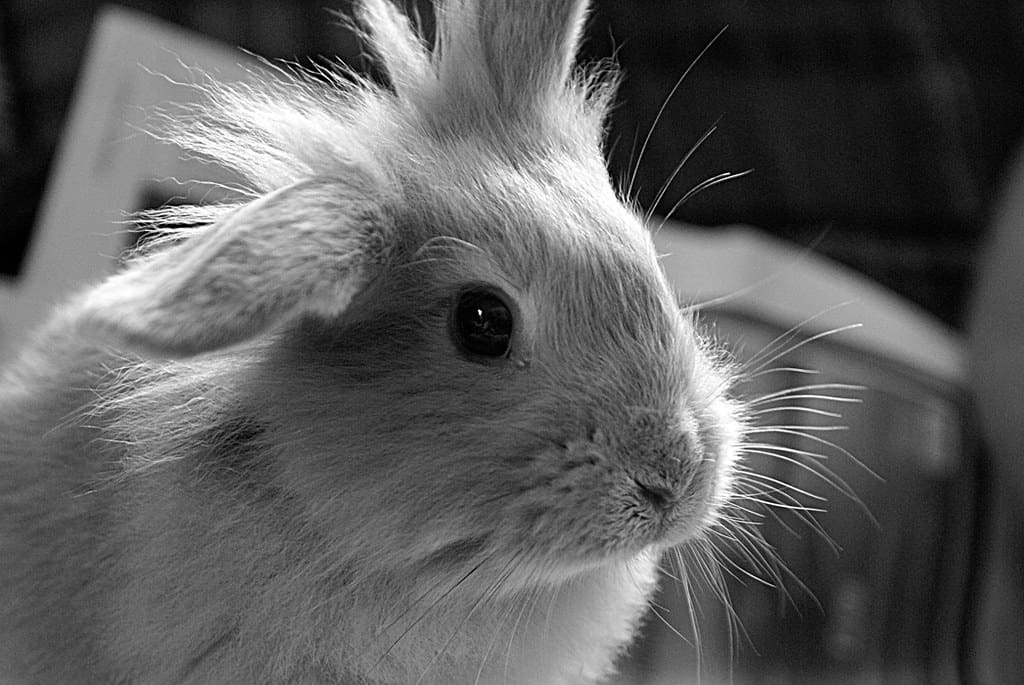
Have you ever noticed how your rabbit’s nose stops or slows down when you get close to them or when you pet them?
If so, give yourself a pat on the back because it means that:
Your rabbit is relaxed around you.
A rabbit’s nose would only slow down the twitching when they perceive no danger and would like to rest and relax. This would often happen when you’re petting them or they are sleeping in a safe environment.
Here’s a video of a rabbit’s nose twitching when they are fully relaxed:
Your rabbit could even stop twitching their nose entirely if they were so relaxed while sleeping that they looked like this:
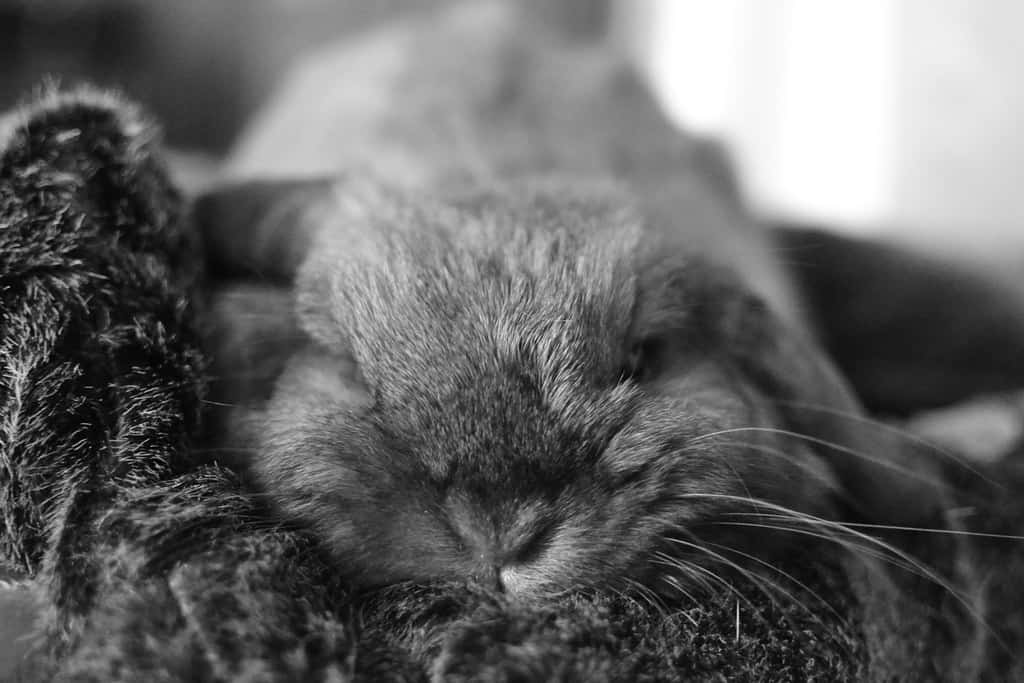
Your rabbit wiggles its nose to breathe easily.
Rabbits cannot pant when they are tired, unlike other animals. As a result, they must rely on alternative methods to cool themselves off.
Another reason your rabbit is twitching their nose slowly is to make it easier for them to breathe. They frequently do this while resting after a period of intense running or exercise.
Summary
Rabbits twitch their noses to have a better sense of smell. A fast nose wiggle indicates that your rabbit is alert and looking for predators.
It could also indicate that it is attempting to regulate its body temperature. Rabbits can’t pant like other animals, so they use their nose to help regulate their temperature.
They also twitch their noses faster when they smell something new. This is because they are curious about the new smell and want to make sure it isn’t a predator or something.
The twitching stops when they perceive no danger and would like to rest.
Cite this article:
Sources and further reading
- Buseth, Marit Emilie., and Richard A. Saunders. Rabbit Behaviour, Health, and Care. CABI, 2014.
- Lebas, F. The Rabbit: Husbandry, Health, and Production. Food and Agriculture Organization of the United Nations, 1997.
- Patry, Karen, et al. The Rabbit-Raising Problem Solver: Your Questions Answered about Housing, Feeding, Behavior, Health Care, Breeding, and Kindling. Storey Publishing, 2014.
- European Rabbit
- Bunnies twitch their noses for information
- Thermoregulation in rabbits

